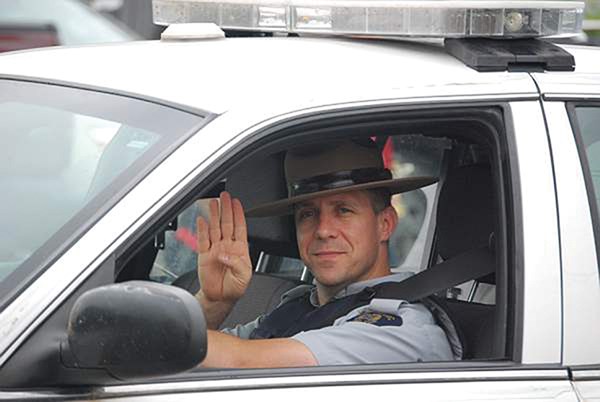You could say Insp. Robert Dykstra took the job as the Sea to Sky RCMP’s new Officer-in-Charge at an opportune time for someone looking to learn the ropes.
Taking over for Insp. Kara Triance, who left the job last year, Dykstra comes in at a time of profound change for Squamish as the community grows at lightspeed and the rush of post-pandemic visitors adds to the strain on policing resources.
“In terms of the policing environment, obviously it’s changing quite a bit in the Squamish area right now,” Dykstra said. “The population is exploding, there’s lots of growth happening, and then of course we have the COVID regulations and rules that are slowly going away and increasing the number of people coming to visit. That obviously is causing some major concerns.”
The Chief caught up with the 14-year police veteran to discuss what he sees as the policing priorities for Squamish, his thoughts on the Defund the Police movement, and improving relations with the local Indigenous community.
First was a discussion about the local opioid situation, as well as the newly-opened Squamish Overdose Prevention Site.
While Dykstra noted he is “still getting to know the lay of the land” locally, he said the overdose rate in Squamish “is better than in the Lower Mainland and the big centres,” but remains a concern. “I know there have been overdoses in the recent past.”
Dykstra added there has been an uptick in calls for service in the area around Third Avenue, where the overdose prevention site opened in February, and where the Under One Roof supportive housing facility is located, and the RCMP is working with the District and local social-service providers to ensure those accessing those services are safe. “Even though we’re seeing an uptick in calls for service and some concerns being raised by members of the community, there is a fair amount of engagement between us and the District of Squamish and those groups in order to figure out how best to move forward and work so that everyone is safe,” he said.
Dykstra also spoke to his preferred policing approach to the community’s homeless and under-housed population, explaining how the Squamish detachment has prioritized creating relationships with more vulnerable members of the public and directing them to available resources.
“Our objective isn’t to go out and pound the pavement and charge everybody and give everybody tickets and create a bad situation for them,” he said. “In those circumstances, obviously these are people in need, so we would take every opportunity we can … in pointing them in the direction of the services they need. In some cases, they may not want the service and they may not necessarily engage you to that, but by creating a friendly face and being present and talking to them, you create that opportunity and that relationship.”
Following last summer’s killing of George Floyd at the hands of Minneapolis police and the subsequent anti-racism rally that attracted hundreds to Squamish’s O’Siyam Pavilion last June, leading to calls to defund the police, Dykstra spoke to the movement as an opportunity to reflect on the role of police in an evolving society.
“For me, defund the police is a statement saying, ‘Hey, we need to have the police engage more in the duties they themselves are properly supposed to be engaged in,’” he said, noting that he doesn’t support taking away police funding, but rather increasing funding for other social-service providers. “So having police engaged in providing mental health services doesn’t make any sense. We wouldn’t ask an officer to go to a hospital and perform brain surgery. But what we want is for police to be able to investigate crime and assist people who are in trouble. Sometimes that assistance requires us to engage our partners, so for me, when they say ‘defund the police,’ it’s kind of an invitation towards partnership policing.”
Dykstra also touched on the need for a personalized approach to improving relations with Squamish’s local Indigenous population, particularly in light of the mistrust built over generations of oppression and racism that has been thrust back into the spotlight following the recent discoveries of Indigenous remains at two former residential schools.
“I think the only way you can really do that is one step at a time, one day at a time, one interaction with the public at a time,” he said. “It’s actually incredibly important because this is something that is affecting that person now and their family in the past. It’s not an easy answer.
“I don’t know if you can fix it and make it better; the only thing you can do is acknowledge it and work with the people that you’re working with on a daily basis in such a way that shows compassion and understanding of the history.”



